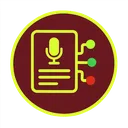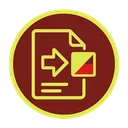Learning to code can seem intimidating at first, but Python makes the process approachable, logical, and even enjoyable. Over the past decade, Python has evolved from a niche scripting language into one of the most widely used programming languages in the world. It powers everything from small automation scripts to large-scale web applications and artificial intelligence systems. Its readability and simplicity have made it the first choice for millions of beginners taking their first steps into programming.
If you’ve ever wanted to learn how software actually works, Python is the perfect place to begin. It’s friendly, forgiving, and flexible — a language that lets you turn ideas into working code faster than almost any other. Whether you’re exploring coding for fun, building tools for your business, or considering a new career in tech, learning Python can set you on a path filled with opportunity.

What Exactly Is Python?
Python is a high-level programming language created by Guido van Rossum and first released in 1991. From the start, it was designed around one guiding principle — code should be easy to read and write. Unlike lower-level languages like C or Java, Python’s syntax is clean and intuitive. Instead of worrying about brackets, semicolons, or data types, you can focus on solving problems and building things that work.
The philosophy behind Python is sometimes summed up in its unofficial motto: “Batteries included.” It means that Python ships with an extensive standard library, a built-in toolkit that helps you accomplish complex tasks without needing to install extra packages. Want to read a spreadsheet, process a web request, or perform a calculation? Python already has you covered.
Why Python Is Ideal for Beginners
For newcomers to programming, Python removes many of the usual barriers to entry. Its syntax is close to plain English, so you can often guess what a line of code does even before learning the rules. Because it’s interpreted, you can also run code immediately — no lengthy compilation steps, just type and test. That instant feedback helps beginners learn by doing, which is the most effective way to grasp coding concepts.
Python’s readability is another reason educators and professionals alike love teaching it. Every indentation and spacing rule is designed to encourage clean, logical code that’s easy to follow. When you return to your own code weeks later, you can actually understand what you wrote — a surprisingly rare experience in many other programming languages.
And perhaps most importantly, learning Python doesn’t box you into one field. It’s a foundation that opens doors across countless industries. Once you understand the basics, you can use Python for web development, data science, AI, automation, game development, and more — all using the same core language.
What You Can Do with Python
Python is often described as a “general-purpose” language, and for good reason. It’s everywhere. Developers use it to build robust web platforms, automate business workflows, crunch massive data sets, and even control robots. For those curious about where Python can take them, here are some of the most popular directions learners pursue after mastering the basics:
Web Development: Frameworks like Django and Flask make it surprisingly easy to build websites and web applications in Python. With just a few lines of code, you can create a blog, an API, or even a full-scale platform serving thousands of users.
Data Science and Machine Learning: Python has become the backbone of modern data analysis. Libraries like NumPy, Pandas, and Matplotlib help process and visualize data, while tools like Scikit-learn and TensorFlow bring machine learning within reach. If you’ve ever wondered how Netflix recommends shows or how chatbots understand text, Python is behind much of it.
Automation and Scripting: One of the most satisfying things for beginners is discovering how Python can automate small daily tasks. From renaming hundreds of files to scraping information from a website, Python can take chores that once took hours and reduce them to seconds.
Game Development: While Python isn’t the go-to for large 3D games, libraries like Pygame allow you to build fun 2D projects and prototypes, which is an engaging way to learn problem-solving and logic.
Getting Started with Python
The beauty of Python is that you can start experimenting almost immediately. Installing it takes minutes — visit the official Python website and download the latest version for your system. The installation includes everything you need to begin coding, including an interactive console where you can type commands and see results instantly.
For a smoother experience, many developers use an Integrated Development Environment (IDE) such as VS Code, PyCharm, or Jupyter Notebook. These tools provide colour-coded syntax highlighting, error checking, and handy shortcuts that make the learning process faster and more enjoyable.
Once you’re set up, the best way to learn is by building small projects. Start with something simple — a calculator, a basic to-do list, or a guessing game. Each project helps you grasp new programming concepts naturally. Over time, those small wins build confidence and momentum, and before long, you’ll be comfortable writing more complex programs that actually solve real problems.
Learning Resources
The Python community is one of the friendliest and most active in the tech world, which means there’s no shortage of help. You’ll find everything from official documentation and free tutorials to interactive courses and forums full of helpful developers. Sites like Codecademy, Coursera, and freeCodeCamp offer structured lessons that guide you through Python step-by-step.
But remember — no tutorial can replace hands-on experience. The more you write, the faster you’ll improve. Try to build something personal and practical, whether it’s automating part of your workflow or creating a small app for fun. That’s when Python really clicks.
FAQs
Why is Python so popular?
Because it strikes the perfect balance between simplicity and power. It’s easy enough for beginners to learn yet powerful enough to build cutting-edge AI systems, data pipelines, and web platforms.
Do I need any prior experience?
Not at all. Python is often the first language recommended to new programmers precisely because it doesn’t assume prior knowledge. You can learn the basics and start coding on your very first day.
Can Python help me get a job?
Absolutely. Python is in high demand across many industries — software development, data analytics, cybersecurity, and more. Having it on your CV signals adaptability and technical proficiency.
How long does it take to learn?
That depends on your goals. With regular practice, most learners can grasp the fundamentals in a few weeks and build meaningful projects within a couple of months.
What’s the best way to learn?
Combine tutorials with small projects. Reading and watching can only take you so far — building things is what transforms knowledge into skill.
Related Posts
- Introduction to Unit Testing in Python: A Practical Guide
- How to Create a REST API
- How to Develop a Secure Login System with Flask and Python
- Getting Started with Web Scraping Using BeautifulSoup and Python
Python isn’t just a programming language — it’s a gateway into the world of technology. Start learning today, and you’ll quickly discover how empowering it feels to make computers work for you instead of the other way around.



